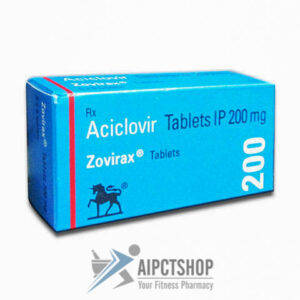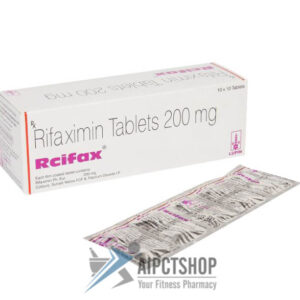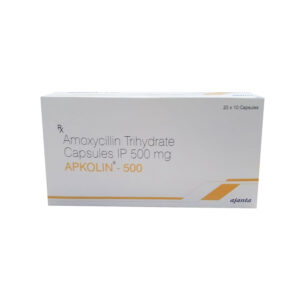Azithromycin is used to treat certain bacterial infections, such as bronchitis; pneumonia; sexually transmitted diseases (STD); and infections of the ears, lungs, sinuses, skin, throat, and reproductive organs. Azithromycin is in a class of medications called macrolide antibiotics. It works by stopping the growth of bacteria. Antibiotics will not kill viruses that can cause colds, flu, or other infections.
Usage directions
Azithromycin comes as a tablet, an extended-release (long-acting) suspension (liquid) and a suspension (liquid) to take by mouth. The tablets and suspension (Zithromax) are usually taken with or without food once a day for 1 to 5 days. The extended-release suspension (Zmax) is usually taken on an empty stomach (at least 1 hour before or 2 hours after a meal) as a one-time dose. To help you remember to take azithromycin, take it around the same time every day. Follow the directions on your prescription label carefully, and ask your doctor or pharmacist to explain any part you do not understand. Take azithromycin exactly as directed. Do not take more or less of it or take it more often than prescribed by your doctor.
Shake the liquid well before each use to mix the medication evenly. Use a dosing spoon, oral syringe, or measuring cup to measure the correct amount of medication. Rinse the measuring device with water after taking the full dose of medication.
If you receive azithromycin extended-release suspension as a dry powder you must first add water to the bottle before you take the medication. Open the bottle by pressing down on the cap and twisting. Measure 1/4 cup (60 mL) of water and add to the bottle. Close the bottle tightly and shake well to mix.
Use the extended-release liquid within 12 hours of receiving it from the pharmacy or adding water to the powder.
If you vomit within an hour after taking azithromycin, call your doctor right away. Your doctor will tell you if you need to take another dose. Do not take another dose unless your doctor tells you to do so.
You should begin to feel better during the first few days of treatment with azithromycin. If your symptoms do not improve, or get worse, call your doctor.
Take azithromycin until you finish the prescription, even if you feel better. If you stop taking azithromycin too soon or skip doses, your infection may not be completely treated and the bacteria may become resistant to antibiotics.
Ask your pharmacist or doctor for a copy of the manufacturer’s information for the patient.
Other uses
Azithromycin is also used sometimes to treat H. pylori infection, traveler’s diarrhea, and other gastrointestinal infections; Legionnaires’ disease (a type of lung infection); disseminated Mycobacterium avium complex (MAC) infection [a type of lung infection that often affects people with human immunodeficiency virus (HIV)]; pertussis (whooping cough; a serious infection that can cause severe coughing); and babesiosis (an infectious disease carried by ticks). It is also used to prevent heart infection in people having dental or other procedures, and to prevent STD in victims of sexual assault. Talk to your doctor about the possible risks of using this medication for your condition.
This medication may be prescribed for other uses; ask your doctor or pharmacist for more information.
Special precautions
Before taking azithromycin,
- tell your doctor and pharmacist if you are allergic to azithromycin, clarithromycin (Biaxin, in Prevpac), dirithromycin (not available in the U.S.), erythromycin (E.E.S., E-Mycin, Erythrocin), telithromycin (Ketek), or any other medications.
- tell your doctor and pharmacist what other prescription and nonprescription medications, vitamins, nutritional supplements, and herbal products you are taking or plan to take. Be sure to mention any of the following: anticoagulants (‘blood thinners’) such as warfarin (Coumadin, Jantoven); cyclosporine (Neoral, Sandimmune); digoxin (Lanoxin); dihydroergotamine (D.H.E. 45, Migranal); ergotamine (Ergomar); medications for irregular heartbeat such as amiodarone (Cordarone, Pacerone), dofetilide (Tikosyn), procainamide (Procanbid), quinidine, and sotalol (Betapace, Sorine); nelfinavir (Viracept); phenytoin (Dilantin); and terfenadine (not available in the U.S.). Your doctor may need to change the doses of your medications or monitor you carefully for side effects.
- if you take antacids (Mylanta, Maalox), take them 2 hours before or 4 hours after azithromycin tablets or liquid. The extended-release suspension may be taken at any time with antacids.
- tell your doctor if you have ever had jaundice (yellowing of the skin or eyes) or other liver problems while taking azithromycin. Your doctor will probably tell you not to take azithromycin.
- tell your doctor if you have low levels of magnesium or potassium in your blood; if you have a blood infection; if you have or have ever had a fast, slow, or irregular heartbeat; cystic fibrosis; AIDs or human immunodeficiency virus (HIV) infection; myasthenia gravis (a condition of muscles and the nerves that control them); or if you have kidney or liver disease.
- tell your doctor if you are pregnant, plan to become pregnant, or are breast-feeding. If you become pregnant while taking azithromycin, call your doctor.
Food limitations and special diet when taking Azithromycin
Unless your doctor tells you otherwise, continue your normal diet.
Missed dose
Take the missed dose as soon as you remember it. However, if it is almost time for the next dose, skip the missed dose and continue your regular dosing schedule. Do not take a double dose to make up for a missed one.
Possible side effects
Azithromycin may cause side effects. Tell your doctor if any of these symptoms are severe or do not go away:
- nausea
- diarrhea
- vomiting
- stomach pain
- heartburn
- headache
Some side effects can be serious. The following symptoms are uncommon, but if you experience any of them, call your doctor immediately or get emergency medical treatment:
- fast, pounding, or irregular heart beat
- dizziness
- fainting
- rash
- hives
- itching
- wheezing or difficulty breathing or swallowing
- swelling of the face, throat, tongue, lips, eyes, hands, feet, ankles, or lower legs
- hoarseness
- mouth sores
- severe diarrhea (watery or bloody stools) that may occur with or without fever and stomach cramps (may occur up to 2 months or more after your treatment)
- yellowing of the skin or eyes
- extreme tiredness
- unusual bleeding or bruising
- lack of energy
- loss of appetite
- pain in the upper right part of the stomach
- flu-like symptoms
- dark-colored urine
- blisters or peeling of the skin
- unusual muscle weakness or difficulty with muscle control
Azithromycin may cause other side effects. Call your doctor if you have any unusual problems while taking this medication.
Storage and disposal of Azithromycin
Keep this medication in the container it came in, tightly closed, and out of reach of children. Store azithromycin tablets and suspension at room temperature and away from excess heat and moisture (not in the bathroom). Do not refrigerate or freeze the suspension. Throw away any unused azithromycin suspension after dosing is complete . Talk to your pharmacist about the proper disposal of your medication.
Emergency/overdose
In case of overdose, call your local poison control center. If the victim has collapsed or is not breathing, call local emergency services.
Other important information
Keep all appointments with your doctor and the laboratory. Your doctor may order certain lab tests to check your body’s response to azithromycin.
Do not let anyone else take your medication. Your prescription is probably not refillable. If you still have symptoms of infection after you finish the azithromycin, call your doctor.
It is important for you to keep a written list of all of the prescription and nonprescription (over-the-counter) medicines you are taking, as well as any products such as vitamins, minerals, or other dietary supplements. You should bring this list with you each time you visit a doctor or if you are admitted to a hospital. It is also important information to carry with you in case of emergencies.
Disclaimer
We provide only general information about Zithromyacin which does not cover all possible drug integrations, directions or precautions. Information at our website cannot be used for self-treatment and self-diagnosis. Any specific instructions for a particular patient should be agreed with his health care adviser or doctor in charge of the case. We disclaim reliability of this information and mistakes it could contain. We are not responsible for any direct, indirect, special or other indirect damage as a result of any use of the information on this site and also for consequences of self-treatment.








